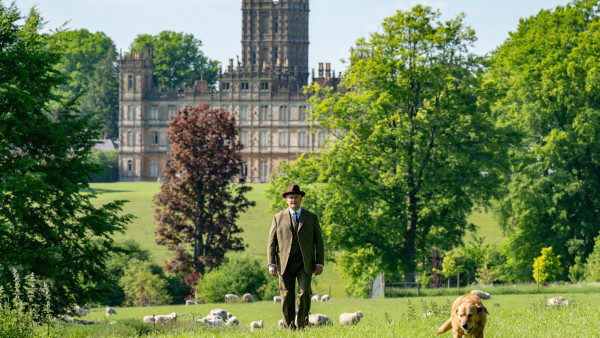
Movies / Reviews
After 25 Years, A Major Saga Comes To An End: First Reviews Of 'Downton Abbey: The Grand Finale'
'Downton Abbey: A New Era' serves as the final chapter of the series, now available on Netflix with mixed reviews from critics.
Director Simon Curtis, known for works such as My Week with Marilyn and The Art of Racing in the Rain, brings closure to the long-running British saga Downton Abbey with the recently released Downton Abbey: The Grand Finale. The big question: do critics see the film as a fitting conclusion?
In this final adventure, the Crawleys and their staff enter the 1930s. When a scandal puts Mary in jeopardy, they fight to maintain their social status. As they navigate financial troubles, the family embraces change and the next generation of Downton Abbey leads a new future. On Rotten Tomatoes, the Tomatometer stands strong at 91%.
G. Allen Johnson of the San Francisco Chronicle describes it as an entertaining film for long-time fans. He notes the film provides "delightful escapism infused with the dry humor of Noel Coward, creating constant subtle amusement in the familiar atmosphere of Downton Abbey."
James Dyer of Empire Magazine deems it a fitting finale. He writes that "the sentimental swan song may not make it onto year-end lists, but it pays tribute to Downton and closes the book with style, in a way Violet Crawley would appreciate."
Clarisse Loughrey of The Independent finds the ending worthy. She asserts that "this is likely the most elegant and fitting closing note one could expect." She believes the film stays true to its origins.
Peter Bradshaw of The Guardian calls the film absurd yet still watchable. He mentions that "the film remains oddly entertaining in a strange way, with memorable shots of characters thanking each other for their attentiveness."
Kevin Maher of The Times is less positive. He describes the ending as "both overly sweet and deeply cynical," viewing the film primarily as a showcase for everyone who ever had a role in this long-running class fairy tale.
In this final adventure, the Crawleys and their staff enter the 1930s. When a scandal puts Mary in jeopardy, they fight to maintain their social status. As they navigate financial troubles, the family embraces change and the next generation of Downton Abbey leads a new future. On Rotten Tomatoes, the Tomatometer stands strong at 91%.
In Style
G. Allen Johnson of the San Francisco Chronicle describes it as an entertaining film for long-time fans. He notes the film provides "delightful escapism infused with the dry humor of Noel Coward, creating constant subtle amusement in the familiar atmosphere of Downton Abbey."
James Dyer of Empire Magazine deems it a fitting finale. He writes that "the sentimental swan song may not make it onto year-end lists, but it pays tribute to Downton and closes the book with style, in a way Violet Crawley would appreciate."
Eccentric And Bittersweet
Clarisse Loughrey of The Independent finds the ending worthy. She asserts that "this is likely the most elegant and fitting closing note one could expect." She believes the film stays true to its origins.
Peter Bradshaw of The Guardian calls the film absurd yet still watchable. He mentions that "the film remains oddly entertaining in a strange way, with memorable shots of characters thanking each other for their attentiveness."
A Cynical Note
Kevin Maher of The Times is less positive. He describes the ending as "both overly sweet and deeply cynical," viewing the film primarily as a showcase for everyone who ever had a role in this long-running class fairy tale.